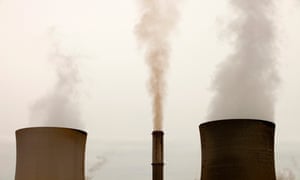When
Treasurer Scott Morrison clomped into parliament with his pet piece of
coal after South Australia’s electricity network collapsed in the face
of extreme weather he was indulging in more than a tacky piece of
political theatre.
Where Tony Abbott killed off a market mechanism to incentivise clean energy by reframing the debate as being about power prices, the current bunch have signalled they will attempt to stymie the transition to renewables in the name of “energy security”.
And watching the speed of the public roll-out of the proposals to re-visit so-called “clean coal” technology and fund new coalmines with public funding earmarked for clean energy, the whole process smacks of a coordinated industry-government campaign: create energy security crisis ignoring advice that renewables were not to blame for outages, position coal as the only short–term salvatio, oh, and don’t say anything about the weather.
But in a caution to the Coal Club and their Canberra operatives, this week’s Essential Report warns the latest shots in the climate wars are being fired not from a position of political strength, but from one of weakness:
At the time, Abbott’s “Big New Tax” seemed as heavy-handed as Morrison’s lump of coal; but, fuelled by industry-funded sceptics and conveniently rising prices caused by the gold-plating of an energy network being fattened for sale, he was able to pioneer fake news and reframe the debate.
The energy price frame claimed the then opposition leader Malcolm Turnbull and not one, but two, Labor prime ministers before delivering Abbott office with a mandate to wind back carbon pricing.
Despite Abbott’s best effort, the Coal Club didn’t succeed in killing off the Commonwealth Renewable Energy Target and the accoutrements of the carbon price, the Clean Energy Finance Corporation, the Australian Renewable Energy Agency and the Climate Change Authority.
As the pricing panic subsided (and note the carbon price compensation payments are still flowing through to many households), the reality of climate change and the need for action had somewhat of a renaissance, fuelled perhaps by a string of record temperatures.
Labor rediscovered its stomach for climate action by endorsing an extended renewable target, technology pushed the costs of solar and wind energy down and the development of battery technology loomed as a game-changer.
The position Labor took to the 2016 election maintains broad public support today, not just from its base and the greens, but from than half of all Coalition voters:
First, he knows that people are sick of constant change and complexity in the energy industry, are anxious about it, and are very susceptible to becoming more anxious.
Second, he knows that energy transition is irrepressible – you can’t stop technological development, the evolution of consumer expectations or the imperative of policy at least giving a nod to climate reality.
Third, he understands that this irrepressible energy transition will inevitably cause more political pain – things are going to get more complex, and more expensive no matter what we build.
There are also serious risks of energy have-nots being severely hurt because energy distributors and retailers struggle to make money from solar customers and therefore will charge non-solar customers more.
So the prime minister has a simple choice: share minimised pain or inflict maximised pain.
Having tried the former when nutting out the carbon compromise with Kevin Rudd, which cost both them their jobs, he’s ready to have a crack at the more hairy-chested approach.
First, it shifts the pressure back to Shorten at a time when he has been coasting in the polls.
Second, it plays superbly to his conservative internal audience who still wear their climate change scepticism as some weird form of Ayn Rand-inspired rugged individualism.
But most importantly, it sets up huge disparity in political blame stemming from energy anxiety.
The coal industry’s game is even more ambitious – not only to slow the transition to renewables, but to stop South Australia being seen to be successful in their embrace of the technology – because that destroys the Coal Club’s value more than any short-term price on carbon.
They know that the future is increasingly non-coal but wants to ensure that as many coal-fired generators as possible are built around the world in the next decade, which hardwires their product into the global energy system for a longer period.
Their objectives include creating a consensus that South Australia is a basket case and embarrassment, forcing policy reversal or a policy millstone on ALP states, and ending the preferential funding for renewables at a national level.
But there’s one significant problem. People like renewables. They love the sense of independence their rooftop solar gives them.
And they know that the future will be clean and smart not dirty and dumb. A full two thirds of people see renewables as a solution rather than a threat, which must include a good number of those who yearn for a less complex and confusing utility supply model.
There might well be real challenges associated with maintaining systems security as it becomes increasingly based on wind and solar but the majority of people remain more interested in solving those challenges than in scoring political points off them.
That’s why opportunistically linking renewables to any power disruption, no matter how tenuous the connection, is not going to stop anytime soon.
The Coal Club has grasped carbon inertia from the jaws of action once before - even in the face of the science and the economics. It’s betting that history will repeat itself.

No comments:
Post a Comment